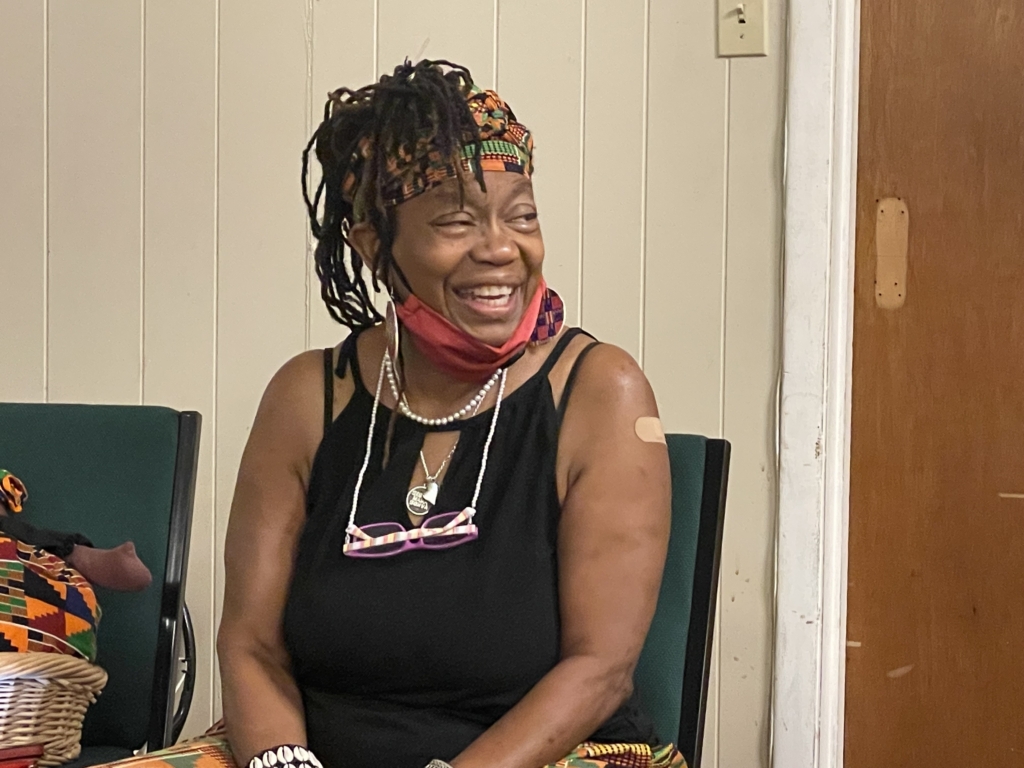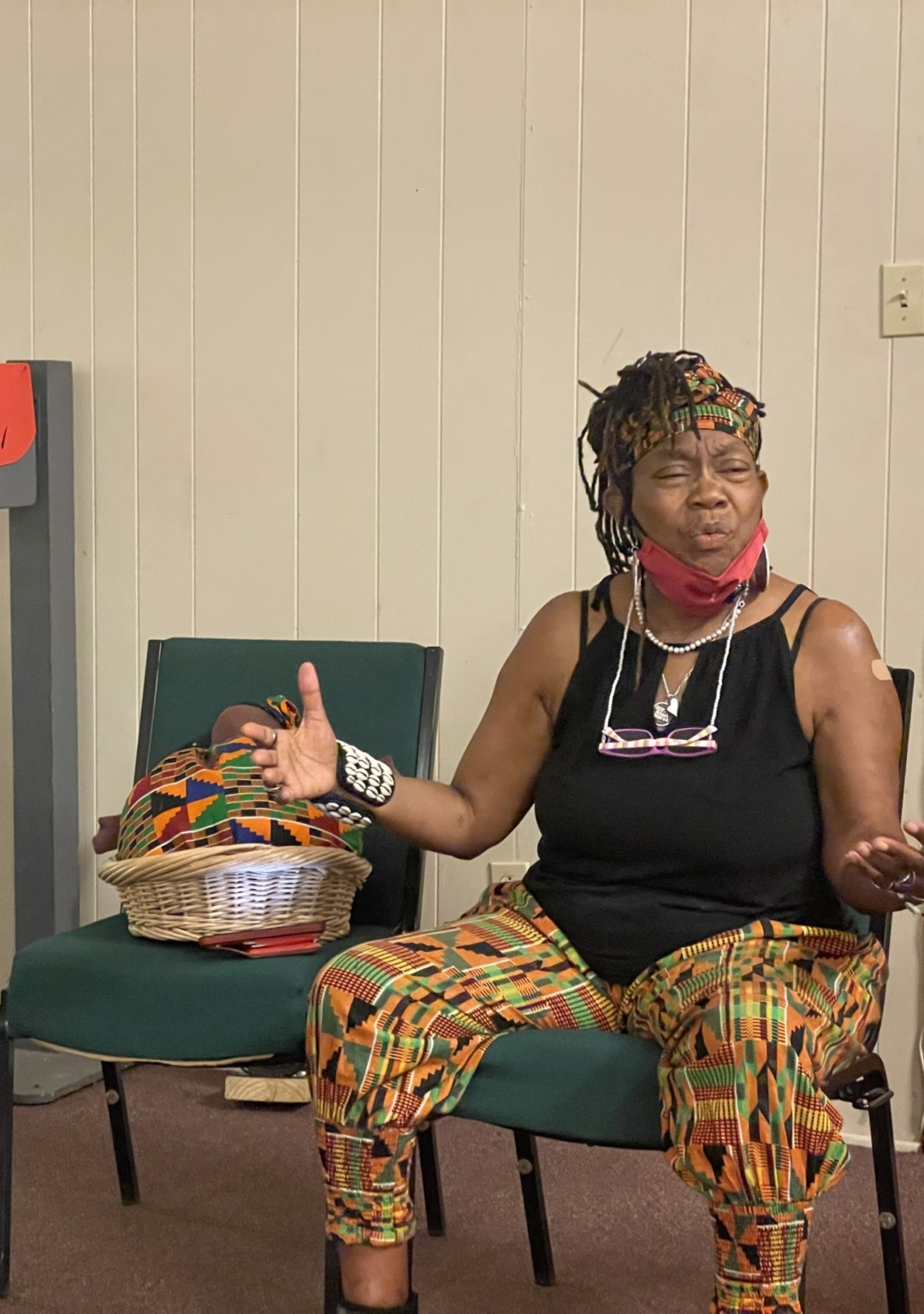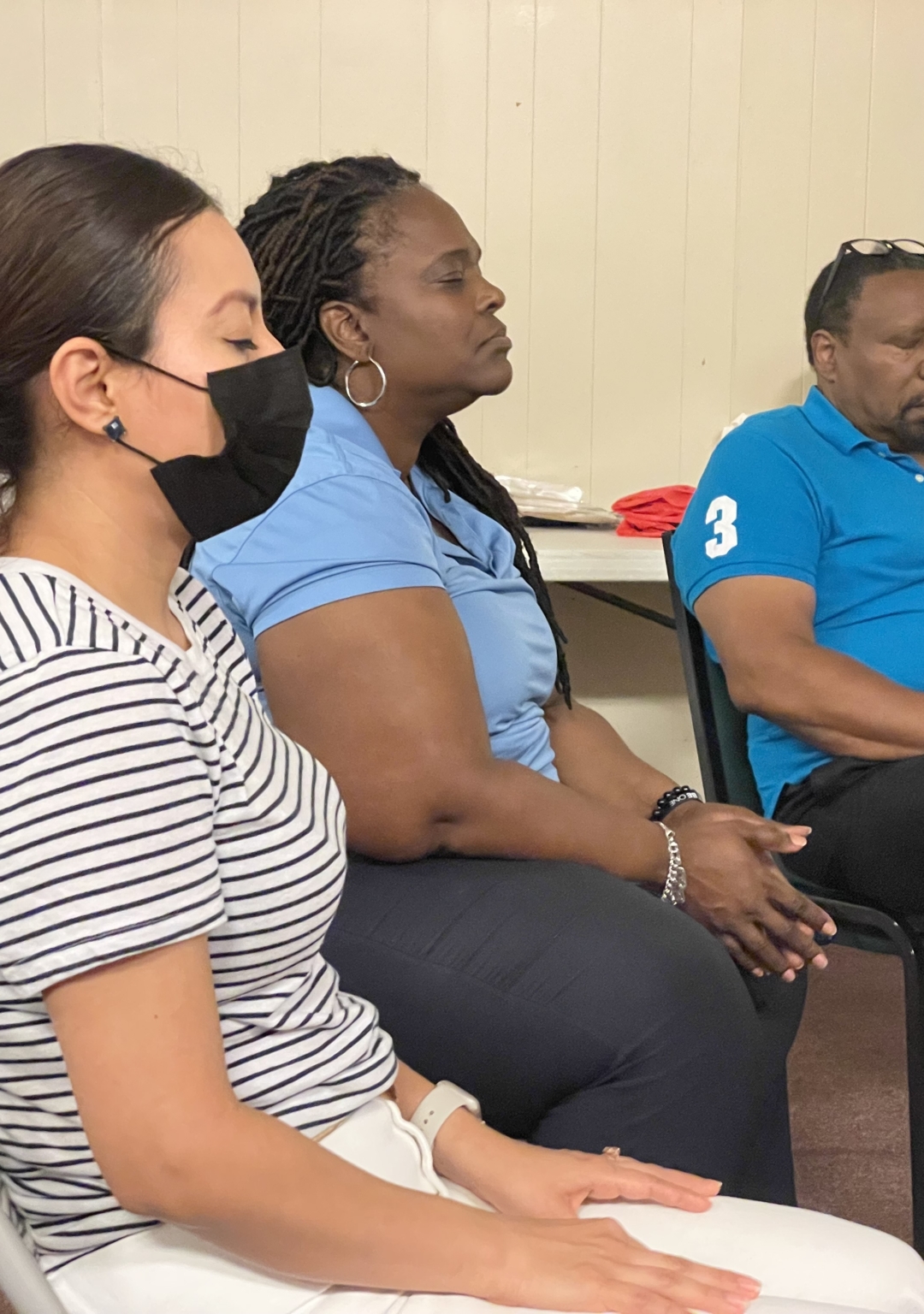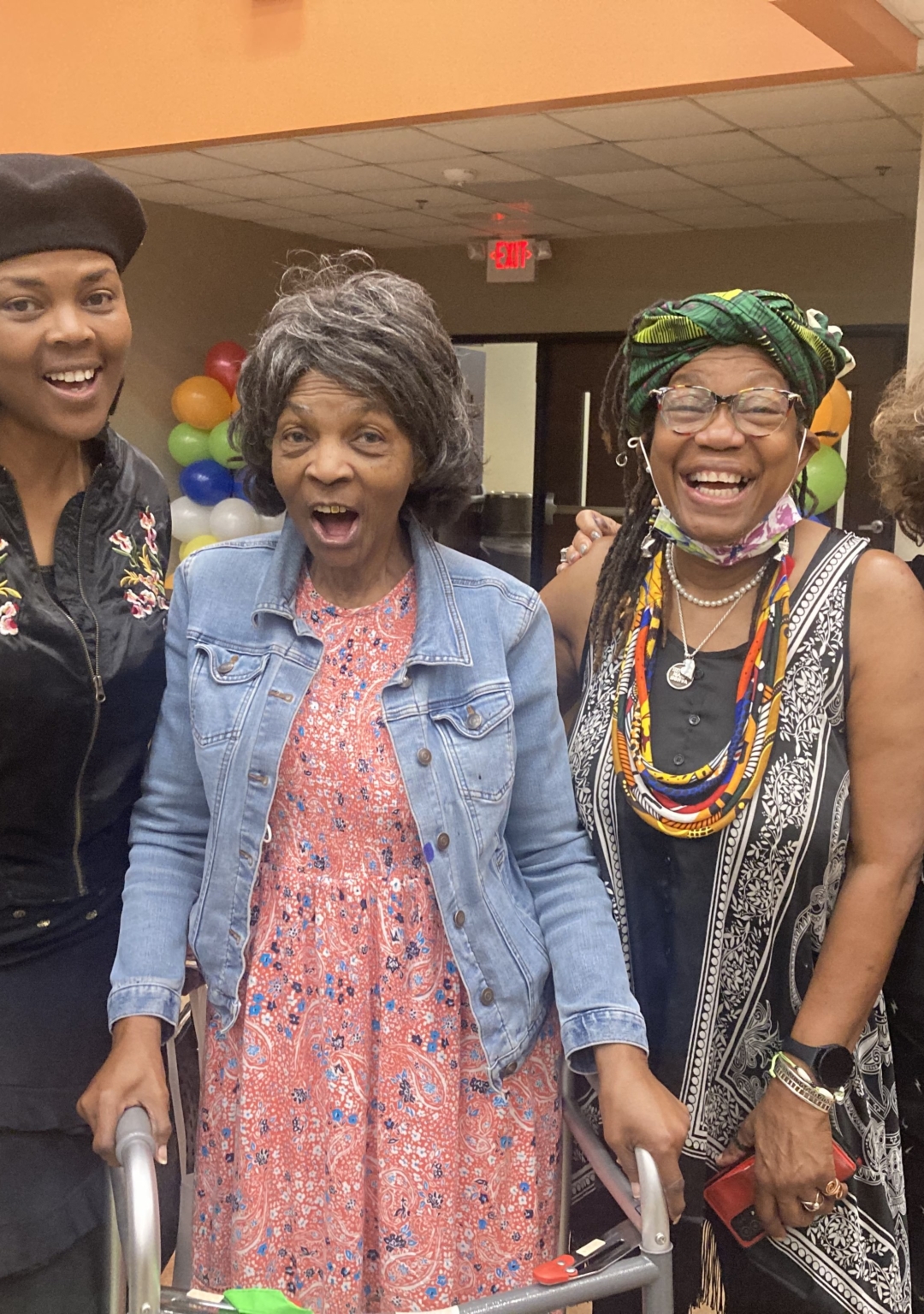
Our healing model is about so much more than sharing skills people can use to relieve trauma and build resilience in their lives. It’s about cultivating the connections that enhance community resilience and build the local capacity for population-wide healing. That’s exactly the kind of transformation happening in Houston, TX, where our model has been brought to life by the inspiring collective efforts of the Greater Houston Greater Houston Healing Collaborative (GHHC), and their backbone organization, The Institute for Spirituality and Health (ISH).
Six years ago, in the wake of Hurricane Harvey, GHHC was established by ISH and six other organizations, including founding partner, The Center for Mind-Body Medicine. From the beginning, the vision was to build a team of trained facilitators to heal the trauma brought by Hurricane Harvey, develop the resilience-building tools to protect against future traumas, and meet the psychosocial needs of the community. The collaborative–led by Gwen Brehm, MEd, LPC, LMFT, CMBM Faculty Member and Chair of GHHC, and Cyrus Wirls, Director of Programs at ISH–has since grown to include many more organizations that continue to partner to bring healing resources to Greater Houston in a way that is equitable and sustainable. Drawing from ISH’s decades-long experience with faith-health work, GHHC works closely with faith communities and other trusted community groups and leaders to equip people with health information that is accessible and relevant to their interests. ISH has used this approach to train communities in diabetes prevention, conduct town hall conversations, and host popup vaccine sites. They now use a similar approach to share mind-body skills.
Since Harvey, GHHC has built a team of 120 trained facilitators: teachers, physicians, students, counselors, community health workers, entrepreneurs, service providers and community leaders of all ages, races, personalities, and life experiences. Collectively, they represent the diversity of the Greater Houston community that the collaborative serves, and have brought 200+ Mind-Body Skills Groups and 300+ workshops to the communities in which they live and work, serving more than 30,000 individuals.
The collaborative responds to both community crises and ongoing psychosocial needs with non-stigmatizing support.
- When a school shooting rocked the town of Santa Fe in May 2018, GHHC partner Houston Galveston Institute spearheaded the collaborative’s response, which included support and resiliency workshops at community centers and churches and Mind-Body Skills Groups for teens and adults at the Santa Fe Strong Resiliency Center.
- Trained facilitators and certified leaders at veteran-serving organizations (the DeBakey VA Medical Center, the VA Conroe Community Based Outpatient Clinic, Easter Seals of Greater Houston, Catholic Charities, and Camp Shield) have offered over 40 Mind-Body Skills Groups to veterans, families, and their caregivers. Between facilitating groups and integrating mind-body approaches in their work, GHHC facilitators have served thousands of veterans to date.
- When COVID-19 first limited in-person connection, GHHC began delivering Mind-Body Skills Groups online, including groups for healthcare providers, teachers, veterans, and teens. They organized workshops with YMCA, Camp Shield, Peace Corps, and Rotary. And they began an online “Open Group for Togetherness,” which drew 500 participants from Houston to New Zealand.
As they serve Houston’s communities, they listen to understand, center community needs in everything (including messaging), and cultivate champions. With the overwhelming challenges of the last three years, these practices have proven vital to their success.

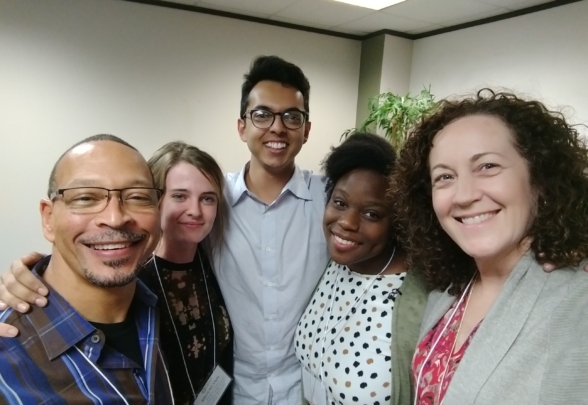
Just a few months after the pandemic began, in the wake of the murder of George Floyd, the BeyGOOD Foundation provided the collaborative a joint grant, “Together We Breathe – Addressing Health Disparities,” to provide Mind-Body Skills Groups and workshops to historically underserved communities of color. The grant enabled GHHC to enhance and deepen their reach into communities of color. CMBM-trained facilitators led groups in Spanish, reaching people in the Latinx community, and expanded their efforts to reach Houston’s Black community. Thanks to the leadership of facilitators who were connected with these communities, and a commitment to listening deeply, GHHC was able to understand the needs of each community, the language they use to talk about those needs, and any cultural concerns that might cause a barrier.
This understanding drove the way GHHC planned their offerings and talked about their work. When the label “meditation” wasn’t a cultural fit in a community, meditative mind-body skills became “breathing exercises,” or “movement.” In a community where “self-care” resonated as a spa day, GHHC would use the terms like “stress management,” “relieving trauma,” or “fostering community and connection.” In some communities where the term “mental health” had previously been stigmatized, GHHC noticed that community members had begun to embrace the term. In other communities, where it’s not a cultural norm to discuss family business “in public,” it was vital to communicate group guidelines—including confidentiality and the option to “pass” instead of sharing. No matter what language they used to promote and deliver mind-body medicine programs, the message was always non-stigmatizing, centered on community needs, and adapted to community culture.
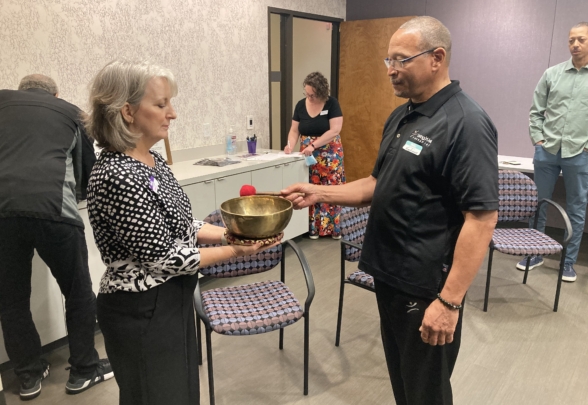

In summer 2021, the BeyGOOD grant ended, but the work to address health disparities was far from over. COVID-19 continued to disproportionately affect communities of color, underlining the systemic racism that pervades not just healthcare, but many other systems that impact on the social determinants of health. To keep funding this important health equity programming, GHHC made the case to the Houston Health Department through an innovative approach that drew a connection between the heightened levels of stress and trauma faced by underserved communities and the increased risk of not only becoming ill with COVID, but of experiencing severe illness, devastating complications, and long COVID. Houston Health Department agreed, and distributed a portion of their CDC funding focused on health equity to help GHHC continue to share healing tools during the pandemic. The Houston Health Department directed GHHC’s grant work toward specific zip codes. In some cases, that meant forging new connections in communities where GHHC did not yet have active partnerships.
In August 2022, the collaborative began work on the Faith-Health Initiative on COVID Disparities, using their faith-health network to reach these communities through houses of faith. Their goals:
- Hold 8 faith-health network convenings for 40 faith communities
- Lead 25 mind-body skills workshops
- Lead 15 8-week groups
Truly listening, centering community needs, and using the right language are all potent practices that have helped GHHC to adapt mind-body medicine approaches to any community. But among their greatest assets are the community champions they have cultivated—individuals who connect powerfully with the model, deeply understand the needs in their community, and take on the role of champions. These community leaders become trusted messengers who spread the word, embrace and adapt the model to the needs of their community, and bring this work to their neighbors. In each community GHHC has served, there’s at least one champion. At the beginning of the Faith-Health Initiative on COVID Disparities, they announced the grant to all facilitators, shared the target zip codes, and asked them to attend a virtual orientation. Facilitators suggested potential partners, and began to help make connections.

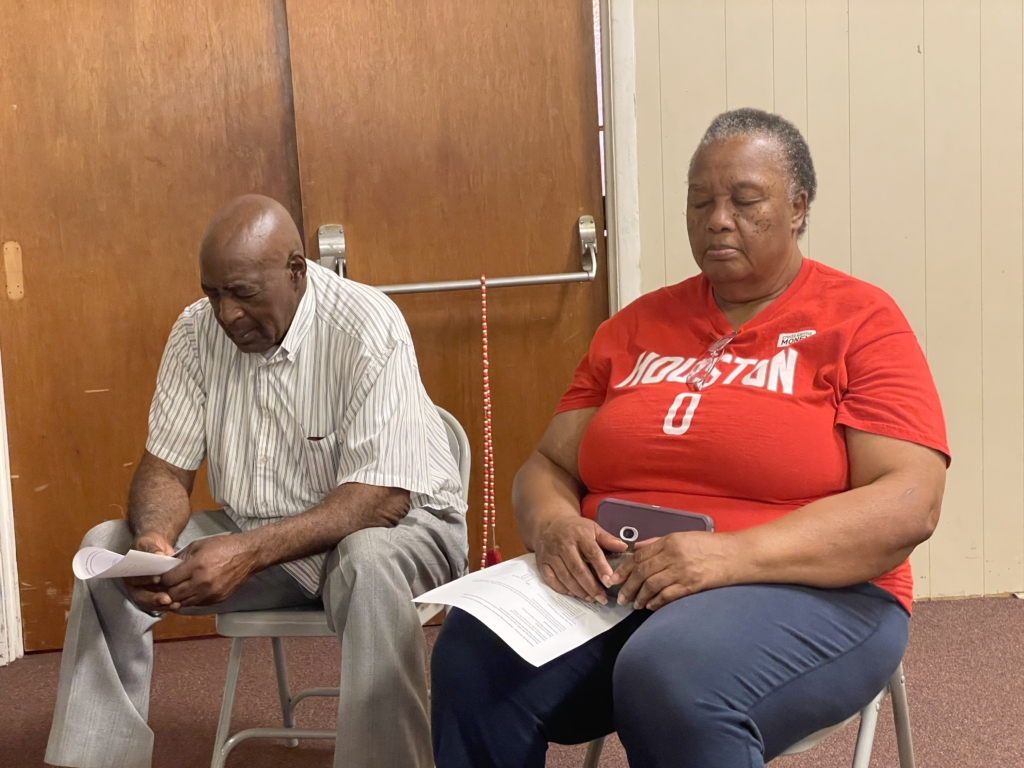
From there, champions began to emerge. A facilitator who had completed a previous faith and diabetes training, as well as a mind-body medicine training, was a congregant at an AME church in Houston. Through her, GHHC was connected with the presiding elder of a district that included 20 churches. The presiding elder became interested in their work, and invited Cyrus Wirls, ISH’s Director of Programs, to present at a meeting with 100 faith leaders. They validated the need, emphasizing, as Cyrus explains, “the importance of people being given a space to talk about things they don’t often talk about, especially in relation to health.” They also identified a great need for support with grief and bereavement—two areas in which ISH already had programs and experience. For Cyrus, a presentation like the one he gave for those faith leaders is about more than sharing what GHHC can offer. It’s about asking what a community needs and listening to the answer. In Cyrus’s words: “Always asking, ‘What are your needs? What do you think this should look like?’”
Another example of an important partner is the Women’s Resource Center for Women and their Families. They’ve done work related to faith and health–especially psychological health–in the African-American community for decades. They’ve been a key resource in helping connect with and organize the involvement of Black churches. A group from the WRC went through mind-body medicine training during COVID-19, and they have come up with innovative ways to talk about mind-body skills. Sister Mama Sonya, a dynamic, CMBM-trained facilitator who is connected with WRC and deeply rooted in the community they serve, held a workshop called “Praise Breath Experience.” She reframed “soft-belly breathing,” the slow, deep breathing technique we teach in trainings and workshops, as “praise breath.” In doing so, she connected mind, body, and spirit in the context of her faith. Her embrace of the model and adaptation of mind-body skills have helped reach people for whom a secular approach is not as resonant or meaningful.
GHHC continues to serve the Spanish-speaking Latinx community thanks to the leadership of Irma Hernandez—a “dynamite facilitator,” to borrow a phrase from Cyrus–who has already facilitated three groups in Spanish.
In addition to their Faith-Health Initiative on COVID Disparities, GHHC continues to reach other communities and affinity groups in Houston with mind-body skills. There is a Mind-Body Skills for Caregivers online group running through the middle of July. In June, they’ll host “Heroic Self-Care,” a restorative Saturday retreat for veterans, veteran caregivers and veteran-serving organizations. The event, which is organized in collaboration with Easter Seals, the Center for Mind-Body Health, and the Greater Houston Healing Collaborative, is a continuation of their ongoing work serving the military and veteran community.
GHHC is a testament to the power of collaboration, and a beautiful example of our inclusive, equitable, and accessible model in action. Together, GHHC partners are building Houston’s capacity to heal by sharing resilience-building tools and fostering community connection.

